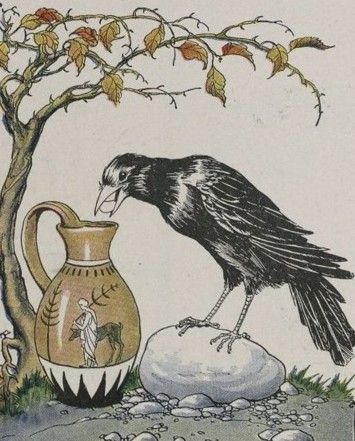Veranda Tales-Looking through rose-colored glasses

Storytelling has been an integral part of my life since childhood. I grew up listening to stories during the hot summer evenings and nights with my cousins. Mothers and grandmothers would gather all of us children for story time. It was usually pitch dark except for a very faint light coming from the flickering candle. Power cuts were as frequent as the hot and humid summer days. We all spread out on a cool concrete floor or on bamboo mats on the veranda intently listening to fascinating stories about kings, queens, princes, princesses, and peasants alike. Stories about love, life, families, and people entertained and taught us life skills. These stories transported us to distant worlds which were strange yet familiar. Often the same story told by two people sounded different as storytellers added new twists and turns adding their personal style and flair to the stories.
Storytelling wasn’t limited to summer evenings and bedtime. I was surrounded by adults that didn’t pass up an opportunity to share their wisdom using the art of storytelling. The rich and vibrant oral traditions include songs, poems, stories, and సామెతలు (Sametalu are proverbs in Telugu). Men and women sing songs as they work in the fields, grind grains and spices and other daily chores at their homes. Stories are often used to teach important life lessons, interpersonal skills, and survival skills. These stories and the time spent listening to them made our lives richer leaving an impression on me. This series is all about reliving those memories as I share these stories.
కాకి పిల్ల కాకికి ముద్దు (Crow finds its offspring adorable)
We all know that parents find their children adorable and precious. This is a global phenomenon across all species on this planet. Crows find their offspring adorable. Monkeys, walruses, and all other species feel the same way. Have you ever noticed a cow licking her calf all over to make the calf feel loved and safe? Did you ever get chased by a mommy Canadian Goose or got hissed at as she cautions you not to come anywhere near her precious goslings? Watch out for that mama bear when you go hiking next time and stay far away. Otherwise she will rip your head off while you attempt to get close to get a selfie with her cub. Even a trillion likes you might get on your posting would not be worth losing a limb or two.
Whenever I notice animals showing their love, I feel fortunate to be a human with two hands to protect my children. I feel sad for the birds and animals that are helpless and hope that their offspring don’t get lost as they migrate from one area to another in search of food and shelter. You would know that if you watch a caravan of Mama Goose and her goslings crossing a street or a deer trying to cross a highway with her precious offspring.
This sametha means “crows aren’t known for their beauty and even they find their little ones adorable”. Crows are very intelligent. I have had several encounters with crows as they tried to snatch a snack or two from my hands and succeeded a few times, sending me crying inside the house. There is that story of a thirsty crow dropping pebbles into the pitcher to get to the water at the bottom when its attempts to knock the pitcher over failed. The water rises up with each pebble and the crow quenches its thirst. One could argue crows are indeed intelligent as this fable demonstrates. There have been studies on crows and their intelligence and they have been proven to be smart according to scientific research. It is also believed that crows can sense when death occurs and congregate on and around a house where people are mourning over their dead relative. Now I am totally digressing from my main point.

As I was growing up I heard this sametha used by people around me including Amma (my mom). It was used to describe a parent's love for their offspring that blinds them to their blemishes. Parents look at their offspring through rose colored glasses. It is so amusing that Amma does the same. It was rather amusing and to this day I remember Amma whenever I hear this sametha. As it turns out, I am very fortunate to have a mother that can find nothing wrong with me. In her eyes, I am the smartest and prettiest among our friends and family. When we came back from a wedding or a party, she would talk about others in my age group who were present at the event. Invariably nobody looked better than me or sounded and acted smarter than me. What can I say, Amma wears very thick rose tinted glasses.
She slipped up once when I was a teenager and said “You used to be very cute when you were little”. I responded to her saying, “Amma, am I not cute now?” looking at her with fake hurt looks. I might have irritated her by refusing to dress up to attend a wedding or some other special occasion. She would beg me to wear a pretty dress or saree and wear jewelry. I would usually refuse as dressing up isn’t my thing. After saying I was cuter when I was a baby, she apologized for days. I still tease her on occasion, reminding her of the time when she said “You used to be cute when you were a little baby”. Amma’s behavior is consistent with this sametha that has stemmed from life experiences. We see this all over nature as parents show affection and love and work very hard to protect their little ones. We are all better for it.
